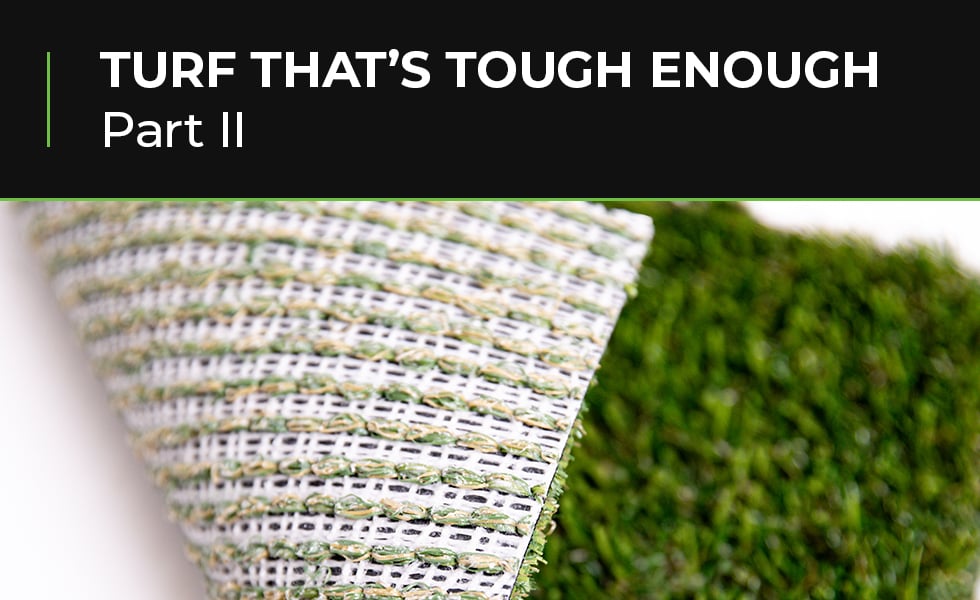Turf That's Tough Enough Part 2: Enhancing Artificial Grass Strength

Enhancing Artificial Grass Strength: Beyond Tuft Bind and Blade Resilience
In the intricate world of artificial grass manufacturing, achieving robust strength and durability extends beyond the pivotal factors of tuft bind and blade resilience. Several key elements play a vital role in shaping the overall quality of artificial turf, ensuring it stands the test of time and maintains its performance in diverse applications.
1. Backing Material Quality:
The backbone of artificial grass lies in its backing material. This foundational layer provides structural support to the grass fibers, determining the turf's overall strength and stability. Opting for high-quality backing materials, such as polyurethane or latex, is paramount. These materials showcase durability and resistance to environmental factors like moisture and UV exposure, safeguarding the longevity of the artificial grass.
2. Stitch Rate and Gauge:
Precision matters when it comes to stitch rate and gauge. Stitch rate, the number of stitches per unit of length along the backing, and gauge, the distance between rows of stitches, collectively contribute to the density and resilience of the artificial grass surface. A higher stitch rate and narrower gauge create a denser turf, enhancing its ability to withstand wear and tear from various activities.
3. Infill Selection and Installation:
Elevating performance and resilience often involves the strategic use of infill materials. Materials like sand or rubber granules are incorporated to enhance shock absorption, stability, and overall durability. Thoughtful selection and meticulous installation of infill become crucial, particularly in high-traffic areas or sports fields, where these elements play a pivotal role in maintaining the turf's integrity.
4. UV Stabilization:
The sun's rays can be harsh on artificial grass fibers, leading to degradation and fading over time. UV stabilization additives come to the rescue by being seamlessly integrated into the manufacturing process. These additives act as a shield, protecting the turf from UV radiation and ensuring not only long-lasting color retention but also preserving the structural integrity of the artificial grass.
5. Yarn Shape and Composition:
The strength, resilience, and overall performance of artificial grass fibers hinge on the shape and composition of the yarn. Opting for yarns with high tensile strength and resistance to abrasion, such as polyethylene or nylon, is a common preference. These durable materials contribute significantly to the longevity of the artificial grass.
6. Water Drainage System:
Effective water drainage is an unsung hero in maintaining the stability of artificial grass surfaces, particularly in areas prone to heavy rainfall or irrigation. Well-designed drainage systems ensure efficient water runoff, preventing water buildup that could lead to damage or deterioration. This element is essential for preserving the turf's strength over time.
7. Manufacturing Process and Quality Control:
The manufacturing processes, including tufting, coating, and finishing techniques, wield a significant influence on the final product's strength, durability, and overall quality. Stringent quality control measures throughout the production process are imperative. These measures ensure that the artificial grass not only meets but exceeds industry standards, guaranteeing exceptional performance in applications ranging from residential landscaping to commercial sports fields.

